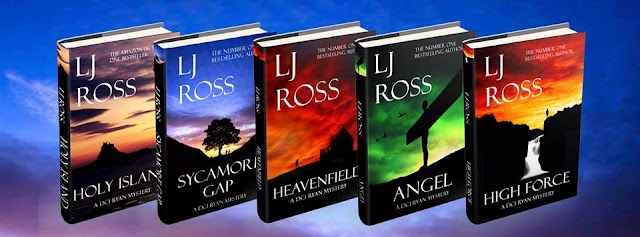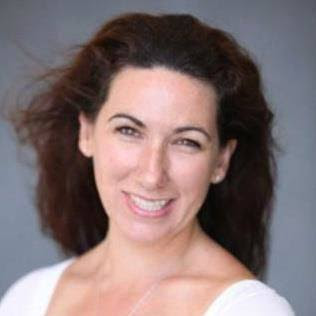Q&A with Steven Hayward
How excited am I that Steven Hayward has dropped by my blog on Jammed Up Publication day for to take part in my Q&A Interview. So without further ado I would like to welcome Mr Steven Hayward.
Morning thank you for joining me this morning
Morning Shell, lovely to finally meet you and thanks for inviting me along.
Can you tell us a little about yourself and background?
For the short answer, my Twitter handle says I’m an author/publisher, AML consultant, plant grower and beagle whisperer!
So, after a long career in banking, where I became the Head of Financial Crime at an American bank’s London office, I now alternate between anti-money laundering consulting contracts and periods of full-time writing and self-publishing. I grew up on the south coast in Dorset and first moved to London as a young man where I met my wife, Helen. Having worked in Poole, London, Wiltshire, Jersey, and visited many cities in Europe, Africa and the US, I now live in Kent with Helen and Ella, our 11-year-old beagle. I enjoy planting things in my garden and Ella enjoys digging them up. Our conversations are not always conducted in a whisper!
When did you know that you wanted to become a writer? and how did you go about it?
I always enjoyed writing, and I read a lot of books as a child. My skillset then was very much towards the creative side—English and Art—but it seemed sensible (and probably was) to pursue a more academic route and I fell straight out of grammar school into banking. The career then got in the way for more years than I care to mention, and it was only when I was at a bit of a crossroads at work that I decided I would revisit those latent vocational preferences.
A couple of creative writing courses got the juices flowing again and a few years later I was fortunate enough to be able to step back from the permanent job and start committing more time to writing. It was still a long, slow process to finally achieve my dream of writing a novel, but during that time I learned a lot about what it takes to be (and stick at being) an author, as well as much about myself, having plucked up the courage to step off the career treadmill.
With my story written, I then looked around for reassurance, but what I found was a publishing landscape in the fallout of the Credit Crunch that didn’t appear the slightest bit welcoming or nurturing to such a novice. I felt I had a choice between the soulful destruction of constant rejection by literary agents—who to be fair were struggling to find support from publishers for their existing clients (except the celebrity ones), let alone read and, dare I say, often even acknowledge receipt of the work of a complete unknown like me—and this brave new world of self-publishing. By now, I know all the arguments on both sides and, whilst I’d never say never to the traditional route, maybe the bottom line for me was that I’d just thrown off the shackles of corporate conformity and the last thing I was looking for was a new boss to tell me if and when they were ready to help me become successful in their world. So I chose to self-publish.
Can you tell us what genre your books are and the audience you write for?
My debut, Mickey Take was written as a stand-alone but is now set to be part of the Debt Goes Bad series. It’s a crime thriller, some might say a psychological thriller, where the hapless ex-banker who narrates the story, and the young woman who calls herself Grace de Manton and constantly pulls the wool over his eyes, have a way of lightening the mood when everything around them is looking grim.
The next in the series is a novella called Jammed Up which is a prequel with a difference, in that it sets new lead characters within the same backdrop, but a few years before the events in Mickey Take. And whilst technically a prequel, I’ve tried to write it in a way that allows for it to be read first or second.
Although they may not follow the traditional formulae, my books are written for readers of crime, psychological, serial killer thriller, and mystery genres – with a bit of romance thrown in! One thing they are not, is police procedural.
What is your writing process? and how long does it take?
I had a lot to learn writing Mickey Take and so it would be a stretch to say I had a process. I had an idea and I started writing. Consequently, it was several years of shelving and rewriting before I could finally think of it as a novel. I allowed myself to be reassured by Stephen King’s On Writing memoir, that it was cool not to know where the story was going! Second time around, I had a more detailed plan. The objective for Jammed Up was already set by the plotline in Mickey Take that I wanted to explore and so I at least knew where strategically it had to end. That said, I still enjoy the exhilaration of developing characters, settings and the tactical direction of each scene in the throes of that first draft creativity. But I have to say, producing Jammed Up in six months feels a whole lot better than the four years it took to finish Mickey Take!
Are your characters based on anyone you know or are they just fictional?
Michael Field—Mickey in Mickey Take—started out a little autobiographical until I realised my very safe life as a banker wouldn’t provide a very exciting journey for my readers! That’s when he morphed into the antithesis of me. But, of course, some of his insights and anecdotes are still mine. But are any of the thugs and psychopaths based on people I know? It probably wouldn’t be prudent for me to say!
I’ve taken a completely different approach in Jammed Up. While there are all the familiar shady characters from Mickey Take (with the exception, as I’ve said, of Mickey and Grace), I have introduced a streetwise Croydon “Rudeboy”, who takes loyalty to the extreme, and a feisty café waitress with a chilling secret. I hope my readers will take them to their hearts, as I did writing about them, but they are both entirely fictional!
Have you wrote about a personal experience in your novels?
Not in any explicit sense. I’ve been lucky to have had a happy childhood, a loving family background, a regular job: who’d want to read about that? But seriously, it’s inevitable that your experiences influence what and how you write. I just consider myself fortunate that I have to rely more on my imagination for the juicier bits!
As a writer, there isn’t much you can’t find out now from the internet, but there are some things you just have to go out and see, touch and, dare I say, smell for yourself. I spend many days exploring locations – like the seemingly innocuous detached house in South Woodford whose secrets I imagined, the little old Essex country pub the location of which I gave a sinister past, the quiet stretch of road where overtaking might constitute a life-threatening manoeuvre, and the quiet little lanes from which you might slip unnoticed into the deep shaded fringes of Epping Forest.
I also try to read as much as I can about the things I don’t know. For example, I wanted to explore the characteristics and distinguishing aspects of psychopaths and sociopaths and got a good insight into the former from Jon Ronson’s The Psychopath Test. And for the latter, Dr Bob Johnson’s Emotional Health was a mine of information on the real-life criminal minds and their frequent association with childhood abuse and emotional neglect. I was also fortunate to have a friend whose job took him regularly into HMP Wandsworth and whose help ensure an authentic description of visiting time.
Who would you like to co-write with and why?
That’s a really tough question. Like most writers, I’m naturally introverted and so the idea of exposing those tentative ideas and uncertainties to another person during the first draft is more than slightly disconcerting.
However, I belong to a small writers’ groups locally and I trust those three writers implicitly with my early ramblings, so I would probably say it would be one of them. All four of us now have self-published novels but we are each very different. I would love to write something humorous and transatlantic with Dominic Canty, the author of the brilliant Dead Men series that is going to be as big as Austin Powers someday. With Michael Tappenden the author of Pegasus to Paradise, a heart-rending biographical fiction about his D-Day hero father and bipolar mother, it would have to be something quirky and nostalgic. And with Jacqueline Andrews, the truly accomplished author of Eastbound, we would explore the seedier side of London town in its 1970s heyday. Only then would I have the confidence to admit that I’d love to co-write with Val McDermid!
What's your favorite book?
I don't have an out and out favourite, so I'm going to say the one that influenced me most when I started writing Mickey Take. Contract by Simon Spurrier demonstrated for me the power and immediacy of the present tense in the words of an unreliable, first person narrator.
What's your favorite food?
I was a fussy eater as a kid, but I did love Mum’s Shepherd’s Pie. Now, I’m something of an omnivore and more likely to go for a good Chicken Balti!
What's your favorite film?
There are only two films I’ve seen multiple times: Wizard of Oz and Gladiator – make of thau wit what yoll!
What's your favorite song?
If I had to pick one that makes the hair stand up on my neck it would be the Leona Lewis version of Run.
How can readers find out more information about yourself and your books?
They’ll find my website at www.StevenHaywardAuthor.com where they can pre-order a FREE e-book of Jammed Up as well as buy a personalised paperback of Mickey Take.
My Facebook Author Page is: www.facebook.com/stevenhaywardauthor
And I’m on Twitter as both: @stevieboyh and @MickeyTakeNovel
Thank you so much for taking part today and good luck with Jammed Up I cant wait to read it.
Thank you for inviting me, I hope you enjoy it.

Thank you so much for taking part today and good luck with Jammed Up I cant wait to read it.
Thank you for inviting me, I hope you enjoy it.





Comments
Post a Comment